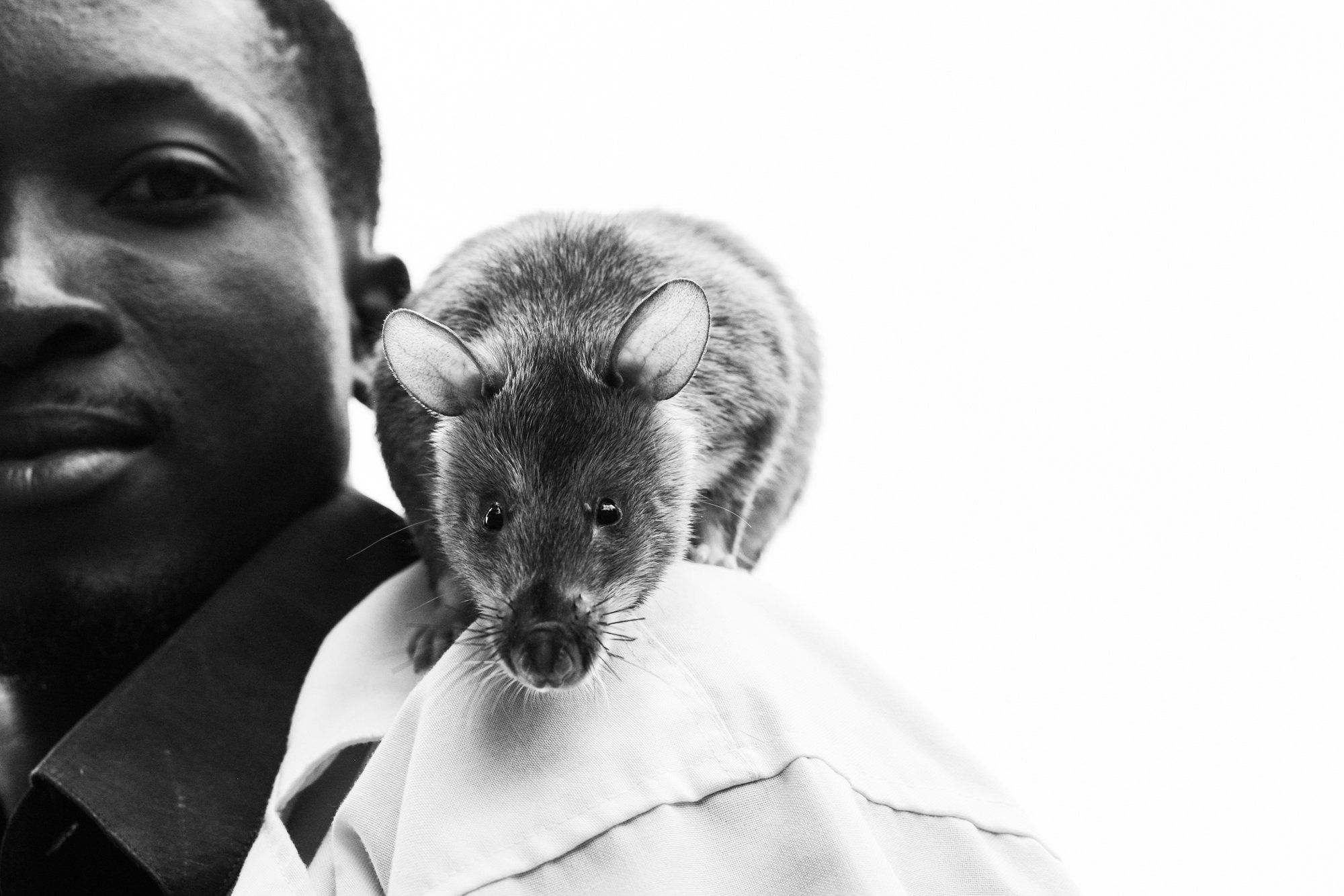
As health organisations promote World Tuberculosis Day, a date dedicated to raising awareness about one of the planet's deadliest diseases, a surprising method for detecting tuberculosis (TB) is being tested - using giant rats with a super sense of smell to sniff it out.
A project devised by the Anti-Personnel Landmines Detection Product Development (Apopo) - a Belgium-based social enterprise which has previously used rats to sniff out landmines - is training giant rats to help screen patients for the disease which caused over 1.5 million deaths worldwide in 2013 according the World Health Organisation (WHO).
The African giant pouched rats are used due to their relatively long life-span (eight to 10 years) and their intelligence and temperament - as well as their superior sense of smell. The rodents can reportedly detect TB positive samples which are often missed by standard screening methods in local health care centres in Mozambique and Tanzania, where Apopo is currently operating its TB program.
Sputum samples from suspected TB cases are retested with the rats, which James Pursey from Apopo says has raised the detection rate on average by about 50%, and in some labs by as much as 80%. "This reflects the challenges some of these labs are facing themselves in identifying TB," he says.
Training each rat costs around €6,000 and, according to Apopo, they are operational for up to eight years.
When the rat detects a TB sample it puts its nose in the corresponding hole, and then gets a click and food. The samples are heated up so the disease is inactive and so doesn't infect the rats.
Pursey explains how the training works: "Once you have isolated a type of scent - with tuberculosis its the smell the metabolism of the bacteria give off - you can train the sense-detecting animals to identify them through a standard method - a click. You let them know when they're near the scent by giving them a click and they get some food. The sample that isn't the target sense means they don't get a click or food. So you introduce lots of smells, reduce the strength of the target smell, and over nine months they are trained to instantly detect the target scent."
He adds that a big advantage of being based in a developing country and using a local resource is that the ownership of the technology remains in the country. "We are not bringing in an expensive technology that the developing country has to pay for. The rats are cheap and resourceful."
Apopo are hoping to expand their work within Tanzania and Mozambique and also to other TB-affected countries in the next year.
The WHO says the worldwide TB death rate has dropped 45% between 1990 and 2013, but that it is still the second biggest killer caused by a single infectious agent, after HIV/AIDS.
Uncommon Knowledge
Newsweek is committed to challenging conventional wisdom and finding connections in the search for common ground.
Newsweek is committed to challenging conventional wisdom and finding connections in the search for common ground.
About the writer
Luke is a reporter at Newsweek Europe based in London covering politics, business, science and technology. @HurstWords
To read how Newsweek uses AI as a newsroom tool, Click here.








